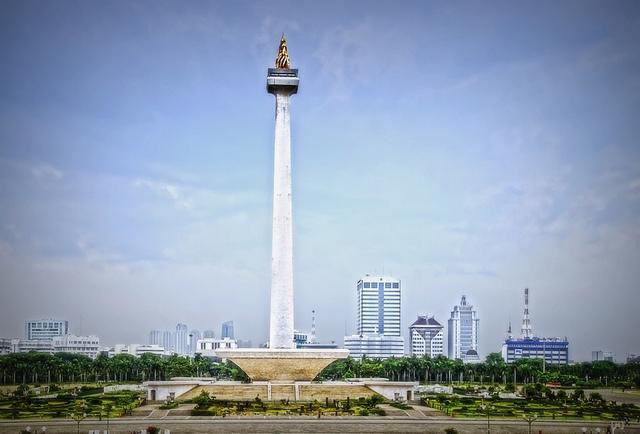Could Indonesia pose a future threat to Australia?
Posted By Paul Dibb on May 17, 2017 @ 14:30

Following last week’s decision by an Indonesian court to jail the former governor of Jakarta—Basuki Tjahaja Purnama (Ahok)—for two years for blasphemy, we need to ask ourselves whether Indonesia is heading down the path of extreme Islam. There’s little doubt that mob pressure over a supposed insult to Islam has succeeded. The question now is how much further is Indonesia going to slide towards an authoritarian Islamic state?
It’s important not to exaggerate this event, but neither should we sweep it under the carpet as an isolated incident. The fact is that what we understand to be Indonesia’s moderate brand of Islam is now under attack. Dennis Richardson indicated in his farewell address to the National Press Club last Friday that it was too early to say whether extremism was entering into mainstream Indonesian politics. But Richardson acknowledged the question was at ‘the sharp end of what we should be watching.’
Since the overthrow of President Suharto’s authoritarian military regime in 1998 Indonesia has made remarkable progress with its new democracy and the growth of a civil society. We have counted ourselves lucky to have such a moderate form of Islam on our very doorstep.
But the disturbing trends we’ve seen of late, of mob violence and thuggery, threaten the institutions of Indonesian democracy. As Greg Fealy has observed [1], Indonesia’s democracy is now badly tainted.
We have witnessed Indonesia lurch towards radical extremes before. President Sukarno in the early 1960s ran a regime that was hostile to the West, including Australia. At that time, Indonesia had the third largest communist party in the world after China and the Soviet Union and its policy of Confrontation [2] (Konfrontasi) with Malaysia and Singapore involved armed conflict with those countries, the United Kingdom and Australia.
Sukarno’s Indonesia was being supplied by Moscow with advanced military equipment that was much better than Australia’s. This included 25 Badger bombers, 68 MiG fighters, a Sverdlov cruiser, 15 destroyers and 12 Whisky class submarines.
As a result, Australia made the decision to order the F-111 fighter-bombers that would be capable of bombing missions to Jakarta and back without refuelling from airfields in northern Australia. We also ordered the Oberon class submarines and the Charles F. Adams class guided-missile destroyers.
All of that suddenly changed in 1965 when Sukarno was overthrown by Suharto, who introduced a pro-Western military government. So, from 1965 to 1998 Australia experienced no military threats from Indonesia—an era Paul Keating later claimed as the greatest single strategic benefit ever conferred on Australia. Of course, we had our differences with Jakarta over such issues as East Timor, Irian Jaya and Papua New Guinea, and freedom of navigation through Indonesian straits.
If Indonesia continues along its recent economic growth path, it promises to be somewhere between the fourth or seventh largest economy in the world by mid-century with a population approaching 370 million people. It will become a major regional power.
It’s therefore vital that Indonesia doesn’t slide towards some sort of aggressive Islamic state. Should that occur we could be faced with a strategic challenge of the first order. This is because an Indonesia that became hostile could pose a serious threat to Australia’s fundamental security.
Such a strategic challenge on our doorstep would have grave implications for our defence preparedness and the ADF’s expansion base, as well as the Defence budget. Moreover, as we discovered in Confrontation, it doesn’t follow that America would necessarily come to our defence if it faced a major military threat elsewhere in the region.
None of this is to extrapolate from current worrying trends with regard to violent religious outbursts in Indonesia to that country inevitably becoming our enemy. But what’s known as the butterfly effect in chaos theory is the phenomenon whereby a relatively minor change in circumstances (for example, the violent Islamist demonstrations over Ahok) can cause unpredictably large changes in outcome with disastrous results.
We shouldn’t therefore dismiss the possibility of our Indonesian neighbour lurching into the sort of extreme religious nationalism that we’re seeing elsewhere in the world. Because of its proximity to northern Australia and our vital lines of communication, as well as its size and different cultural make-up, Indonesia will always have the potential attributes of both a good friend and—in the worst of circumstances—a serious adversary.
Historically, neighbouring countries that have markedly different cultures, ethnic compositions and religions have most often gone to war (witness the history of Europe and parts of Asia). Over the last half-century Australia and Indonesia have averted that fate—including over the independence of East Timor—through a combination of good management and some luck [3].
The decades ahead will probably not see much diminution in the scope for periodic disagreements between our two countries. But prudent Australian defence planning will need to keep an extremely close eye on the direction of Indonesian politics and the implications for our own security of the role of Islamic extremists.
Article printed from The Strategist: https://aspistrategist.ru
URL to article: /indonesia-future-threat-australia/
URLs in this post:
[1] has observed: /race-faith-ahoks-defeat/
[2] Confrontation: https://www.awm.gov.au/atwar/indonesian-confrontation/
[3] combination of good management and some luck: https://www.regionalsecurity.org.au/Resources/Files/vol3no4DibbandBrabinSmith.pdf
Click here to print.